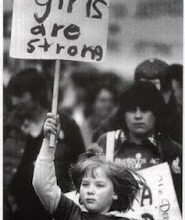By Hannah Absalom ![]() @HousingHannah
@HousingHannah

This article reflects on how behavioural insights can contribute to better designed financial interventions for low income tenants. This encourages a shift away from seeing poverty as reflective of character flaws to a focus on the context of poverty. It is influenced by the book ‘Scarcity’ (Mullainathan and Shafir, 2013). It also responds to a tendency for behavioural insights in housing services to focus on rent collection processes. Behavioural science has significant scope to change housing services and our relationship with our tenants in more meaningful and efficient ways.
What is Scarcity? How does it affect thinking?
The book uses the concept of ‘scarcity’, defined as a feeling of not having enough. Scarcity comes in many forms, including poverty, time and loneliness. It is a mind-set that can affect anyone if the context and circumstances are in place. This article focusses on the effects of poverty (meaning a long-term ‘basic needs’ income, or an income that fluctuates around this) and uses this in place of the wider concept of ‘scarcity’.
Poverty captures the mind and impacts on cognition in two ways; first is a reduction in our ‘mental bandwidth’ which we use to make decisions and process information.
Living in poverty impacts more negatively on thinking than serious sleep deprivation and is relentless in its effects; you can’t take a break from poverty. Experiments show that the grind of poverty reduces our mental control. This makes us more impulsive, causing negative behaviours that appear character driven but are actually created by the circumstances of poverty. This is a clear challenge to financial interventions that focus on individual behaviours when it is actually contextual factors that are causing them.
Poverty also captures the mind by causing ‘tunnelling’, which is focussing on one thing to the neglect of others. Focussing can be positive, tunnelling is not; it inhibits the weighing of costs and benefits and future-oriented thinking. Understanding this can help determine the timing of interventions, such as on the day of a benefits payment rather than the day before, so increasing likelihood of success of an intervention as tunnelling us reduced. It may also explain some non-engagement with services; effectively the tenants focus is elsewhere.
Borrowing goes hand in hand with tunnelling, the present presses in a way that the future does not, causing borrowing from tomorrow to firefight today’s problems. This is often via expensive payday loans. Borrowing is not due to poor self-control but to poverty itself. Further considerations of the impact of the poverty mindset are discussed below:
Trade-off thinking. When in poverty, all choices involve trade offs; every time money is spent on one thing, you are acutely aware that it’s not being spent on another. Frequently there are negative outcomes regardless of what choice is made, often resulting in choice paralysis with no choice being made at all. Understanding the severe mental distress this causes and that there is often no good choice to be made are key to designing meaningful, human centred interventions.
Poverty induces a tendency to fail and to fail more often, a simple error can have significant costs and consequences. There are more opportunities to make errors, creating a cascade of errors from simple mistakes. Poverty also creates logistically harder problems, consuming time, mental bandwidth and increasing tunnelling; often inducing a cycle of poverty compounding failures.
This situation is compounded by financial shocks such as an unexpected job loss or benefit sanction. These shocks can unravel long periods of positive behaviour. The key point is the poverty mindset varies along with income fluctuations that are not captured by averaging income measures. If interventions are designed around average rather than variable incomes, failures are designed in. As work is increasingly ‘flexible’ and insecure, interventions needs to account for this or they will fail.
People in poverty behave more rationally with money. Living in poverty seems to stabilise an internal sense of how much money is actually worth, meaning more care is put into getting more value from how it is spent. When thinking of poverty as a character flaw, it’s easy to miss the skills developed to cope with it. Interventions need to acknowledge and build on the knowledge and capacity many tenants have developed to cope with living on low and fluctuating incomes.
Thoughts on applying this knowledge
Simple changes are powerful especially for someone who is effectively chronically sleep deprived. From keeping home visits to reducing website clicks, it all makes a difference.
Build a human centred service. Programmes with rigid structures will have limited and short-term success. Consult with people who are coping well with living in poverty and build programmes that includes their knowledge.
Change what is measured. When evaluating interventions, should we also measure cognitive benefits? Impact on day-to-day living? Helping someone gain mental bandwidth could result in changes that break the poverty cycle; current measures don’t capture cognition or the day-to-day impact of interventions, often focussing on financial measures instead.
Provide flexible financial products if we know that borrowing is an inevitable part of living in poverty, why not make it easier and timelier to borrow money? Can we build in a savings account when collecting rent? Offer micro loans?
This article may be a challenging read as it offers such a different perspective on this topic. I think we need to ask the question, is it better to locate the problem of poverty induced behaviours with overburdened individuals or does it make more sense to change the context and services around them? As social landlords I think it is a question worth asking.




This is such a great piece and something that isn’t talked about often enough. Starting from the early capitalist models of economics, (rich) people started talking about poverty as a moral flaw, an awful image that has persisted to today. However, poverty should be understood as what it really is – lack of cash. That is it. Poverty is not having enough money, or not having money at all.
The mental (and physical!) impacts of poverty are striking. In regards to Hannah’s question, whether to locate the problem of poverty on individuals, or within a broader context, I’d say definitely within the context. Plenty of literature talks about the need to change our economic system towards a system of wellbeing, a system that provides safe and good housing as a basic need. If we are to take this seriously, then we need to break away from our current systems, become much more innovative in how we work and how we lobby government. I look forward to reading much more on this from many bright minds in SHM in the future!